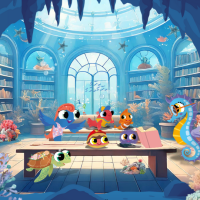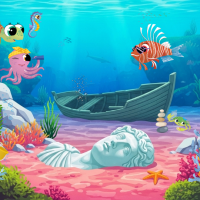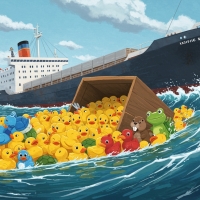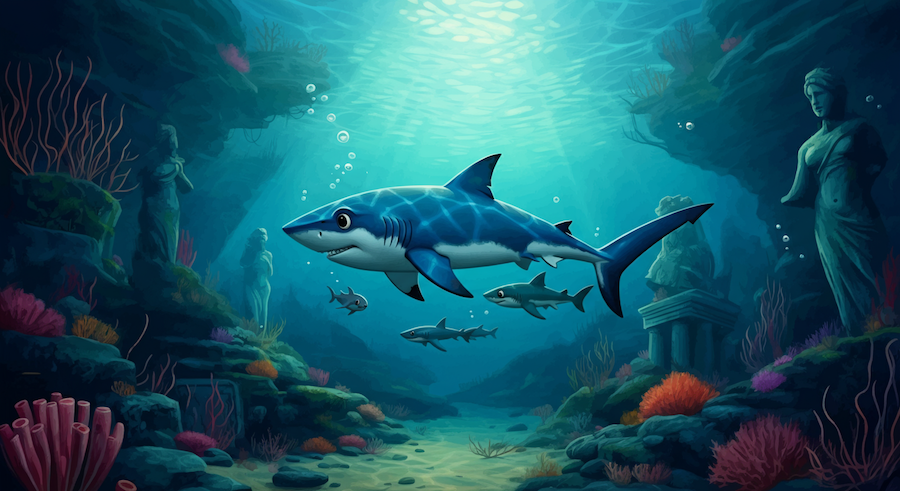
The Secrets of Sharks!
Let’s dive deep into the world of sharks, don't be afraid! Fergal the Shark, one of the biggest Bubble Buddies, glides through the sea like a sleek, silent submarine. Nothing beats watching him cruise by.
![]()
Ready for some jaw-dropping Shark facts?
Ancient Ocean Explorers: Sharks are older than dinosaurs: they swam the oceans long before the T. rex appeared! And even more incredibly, Greenland sharks living in the Arctic Sea are the longest-living animals with backbones on Earth! Scientists used special tools to figure out their age and found one female that was 400 years old. 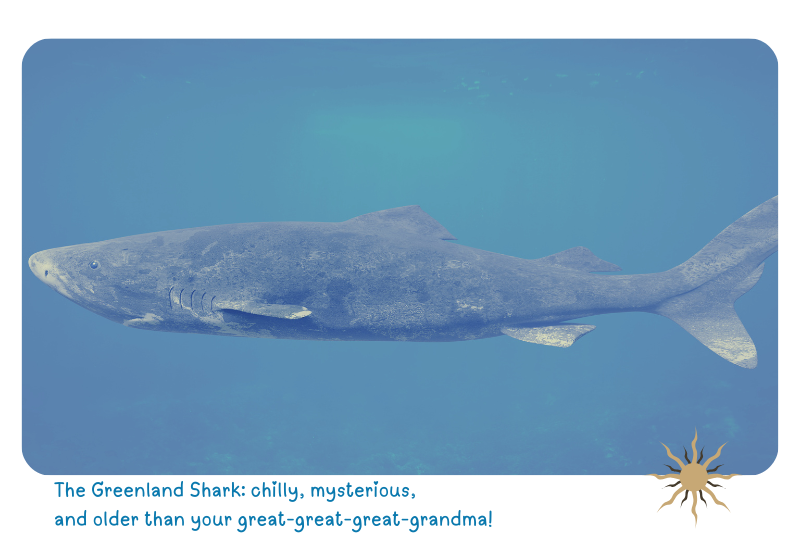
Global Citizen: Sharks can be found in oceans all around the world, from sunlit coral reefs to shadowy, cold depths.
Silent Swimmers: They glide through the water silently. Some species can zip along at speeds of 60 kilometres per hour: that’s fast for a fish.
One thing they can’t do is swim backward. It’s always forward for these ocean adventurers. No reverse!
And I almost forgot! Most sharks don't sleep like we do! They must keep swimming to breathe. Imagine how tiring that is!
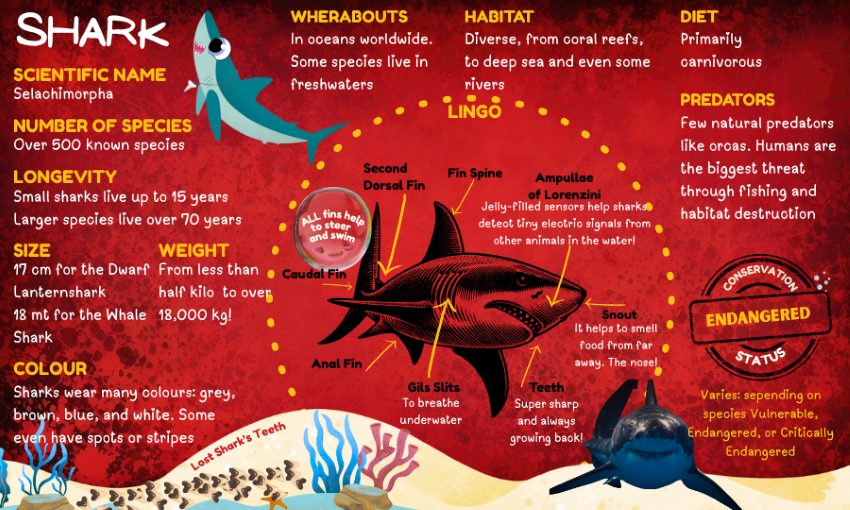
Shark Shapes: They come in all shapes and sizes, from the tiny Dwarf Lanternshark to the enormous Whale Shark. Their bodies are shaped like torpedoes, rounded and tapered at both ends. This special shape, called fusiform, helps them move smoothly through the water.
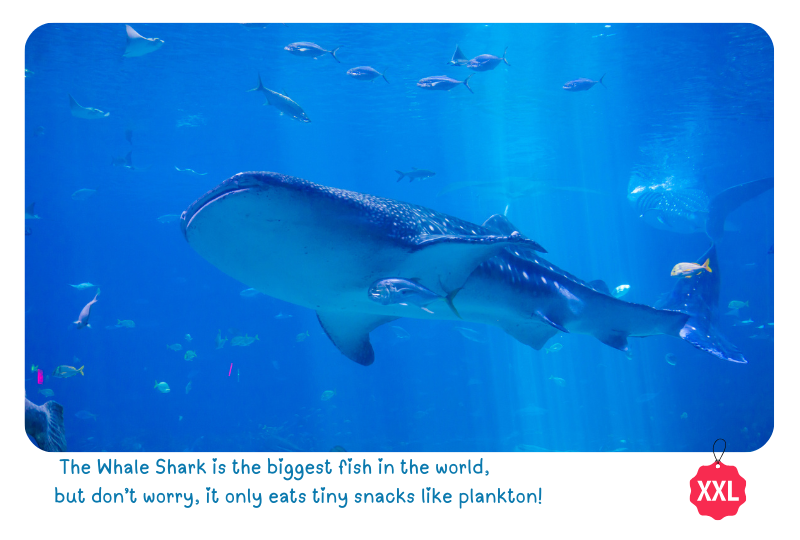
Smart Colour: Their colour is clever, too: darker on top to blend with the ocean depths when seen from above, and lighter underneath to disappear into the brightness when viewed from below. This natural camouflage is called countershading.
Tooth Factories: Inside their mouths, it’s like a tooth conveyor belt; one pops out, and another slides in. When one falls out, another moves forward to take its place. Some sharks go through more than 30,000 teeth in a lifetime. The ocean floor is littered with their lost teeth.
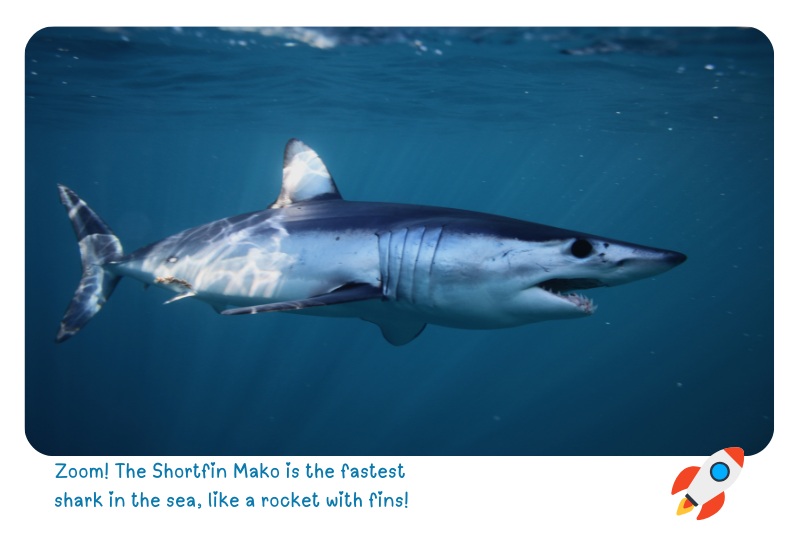
Hearing & Vision: Their hearing works a bit different from ours. Sharks use a special inner ear to sense sound, movement, and even gravity.
Their eyesight is impressive too. Thanks to a shiny layer in their eyes called the tapetum lucidum, sharks can see in low light. Some sharks even roll their eyes back for protection when they get close to something.
Super Sniffers: Sharks have an excellent sense of smell. They can detect tiny traces of scent from kilometres away; even one drop of blood in a vast sea.
Thick Skinned: Their skin is covered in tiny, tooth-like structures called dermal denticles, which not only protect them but reduce drag and help them glide swiftly.
Electric Detectives: They have a sixth sense. Special jelly-filled pores near their snouts, called the ampullae of Lorenzini, let them detect electrical signals in the water. Combined with the lateral line, which runs along their sides and picks up vibrations, these senses help sharks locate prey, navigate their surroundings, and even communicate with each other.
Baby Wonders: Some females shark can reproduce without a male. Talk about independence! Whale Sharks can give birth to around 300 babies at once!
The Final Flick of the Fin: Are sharks smart? That’s not an easy question. Intelligence isn’t only about solving puzzles; it’s about adapting, learning, and navigating our complex world.
Sharks might not write stories or do science experiments, but they process a huge amount of information every moment. Some even recognise familiar sharks and show signs of problem-solving.
If we measure intelligence by adaptability, sharks are at the top. They’ve survived five mass extinctions and thrive in every ocean, from reef to trench. That’s survival mastery.
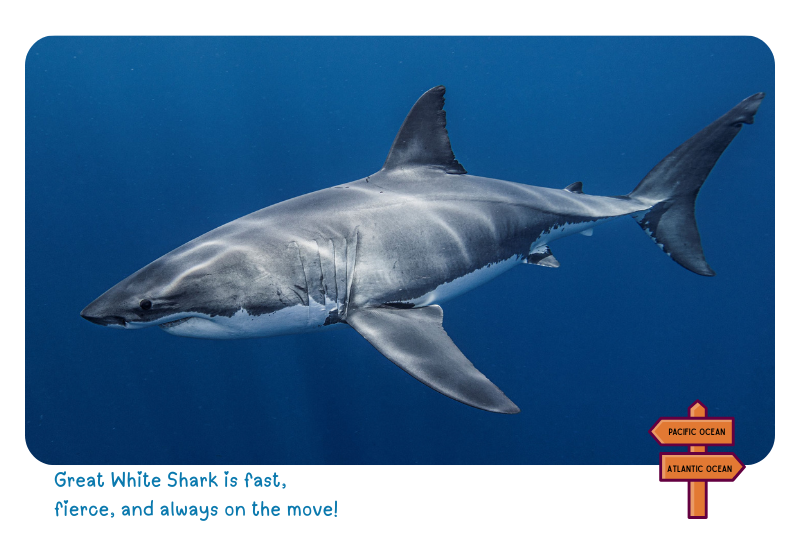
And what about their scary reputation? Most sharks are shy. You’re more likely to be struck by a lightning than have a close meet with a shark. Only a small handful of shark species have ever been involved in incidents with humans and it’s often because the shark was confused or provoked. Nurse sharks, for example, are gentle and not aggressive. No fatal attacks have ever been recorded by them. But like all wild animals, they should be treated with respect and left undisturbed.
Why Sharks Matter
Sharks help keep the ocean in balance. By hunting weak or sick animals, they protect fish populations and help coral reefs and seagrass beds thrive. But they’re facing serious threats.
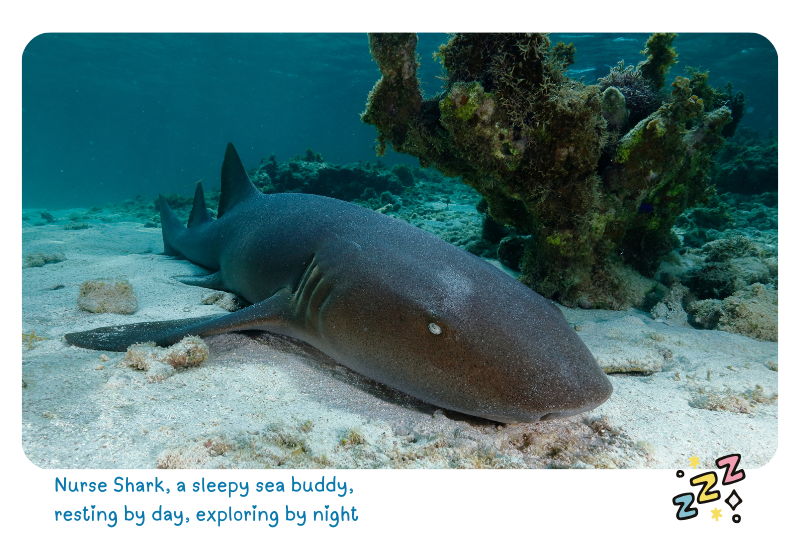
![]()
Why We Need to Protect Our Shark Friends.
Sharks help keep everything in balance and make sure the ocean stays healthy for all the other creatures. But sadly, some people are hunting many sharks. Why?
- For their fins: Sadly, some people want shark fins to make soup.
- For their meat and skin: Some people eat shark meat or use their skin to make leather.
- For their oil and cartilage: Sometimes, people use parts of sharks to make oils or things they think are healthy.
Because of this hunting, many types of sharks are in danger. We need to be their friends and help protect them!
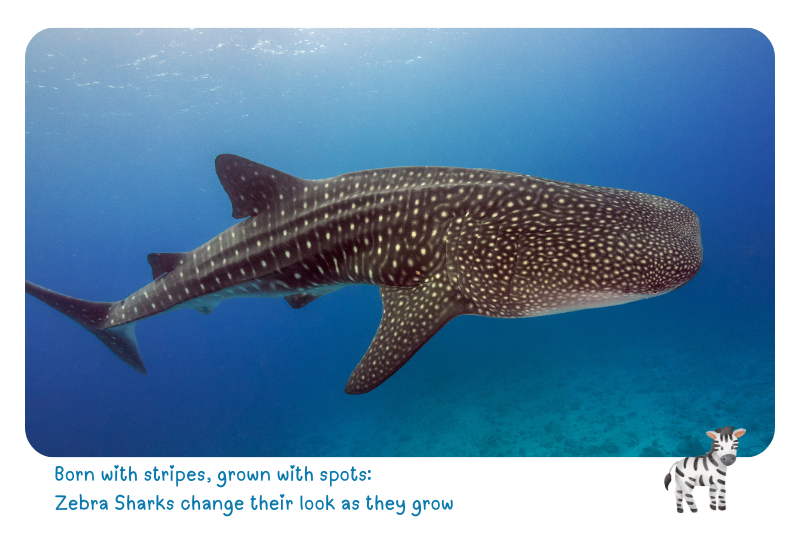
![]()
Fun and Educational Activities
🦈 Draw Your Favourite Shark: Get creative and draw a picture of your favourite type of shark! Send us your shark art or fun fact posters, we’d love to feature your work!
🦈 Shark Fact Match-Up: Can you match these facts to the right shark?
- Can sharks swim backwards? ___________
- This shark can have 300 babies: ___________
- Where can you find sharks: ___________
🦈 Ocean Clean-Up Crew: Help keep our oceans clean by picking up any rubbish you see near the beach or any other waterways. This helps all ocean animals, including sharks!
🦈 Shark Senses Game: Let’s pretend to be sharks and see what it’s like to hunt without using our eyes! In this game, one person becomes the “shark” and wears a blindfold. That means no peeking, like sharks, who often find their prey in dark or murky water. The other players act like sea creatures, quietly making water-like ripples by gently tapping a surface, or releasing a smell like citrus or vinegar into the air (don't fart!). The blindfolded shark must use only their sense of hearing and smell to find the source of the sound or scent. No touching, only sniffing or listening like real sharks do in the wild. This is a fun way to explore how sharks rely on their amazing super senses!
There’s still much we don’t know about sharks. I could float here all day, telling you more! Whether it’s their ancient origins or their role in keeping the ocean balanced, sharks deserve our curiosity and our protection.
Stay curious, stay kind to the sea.
Sophia the Seahorse


